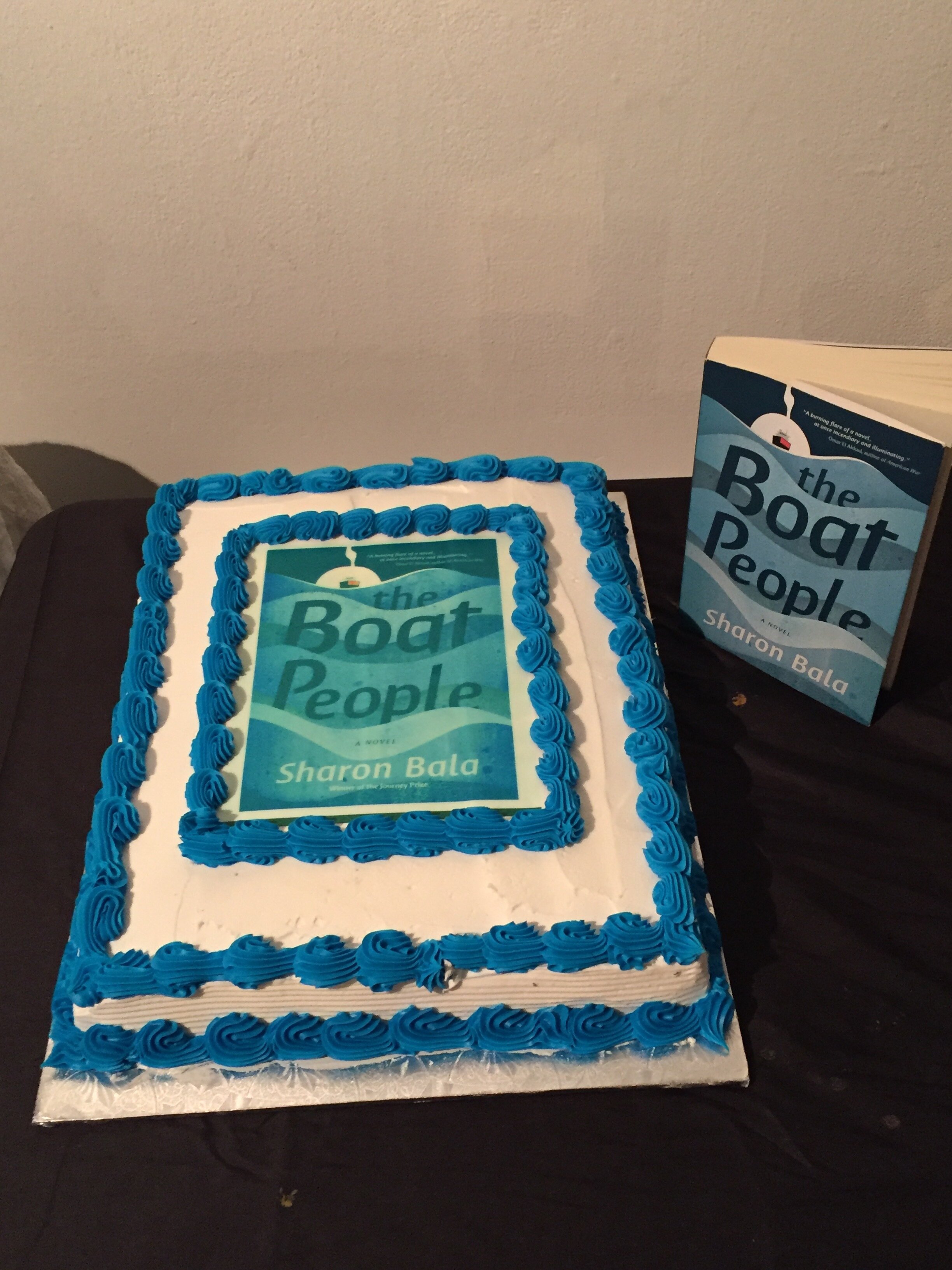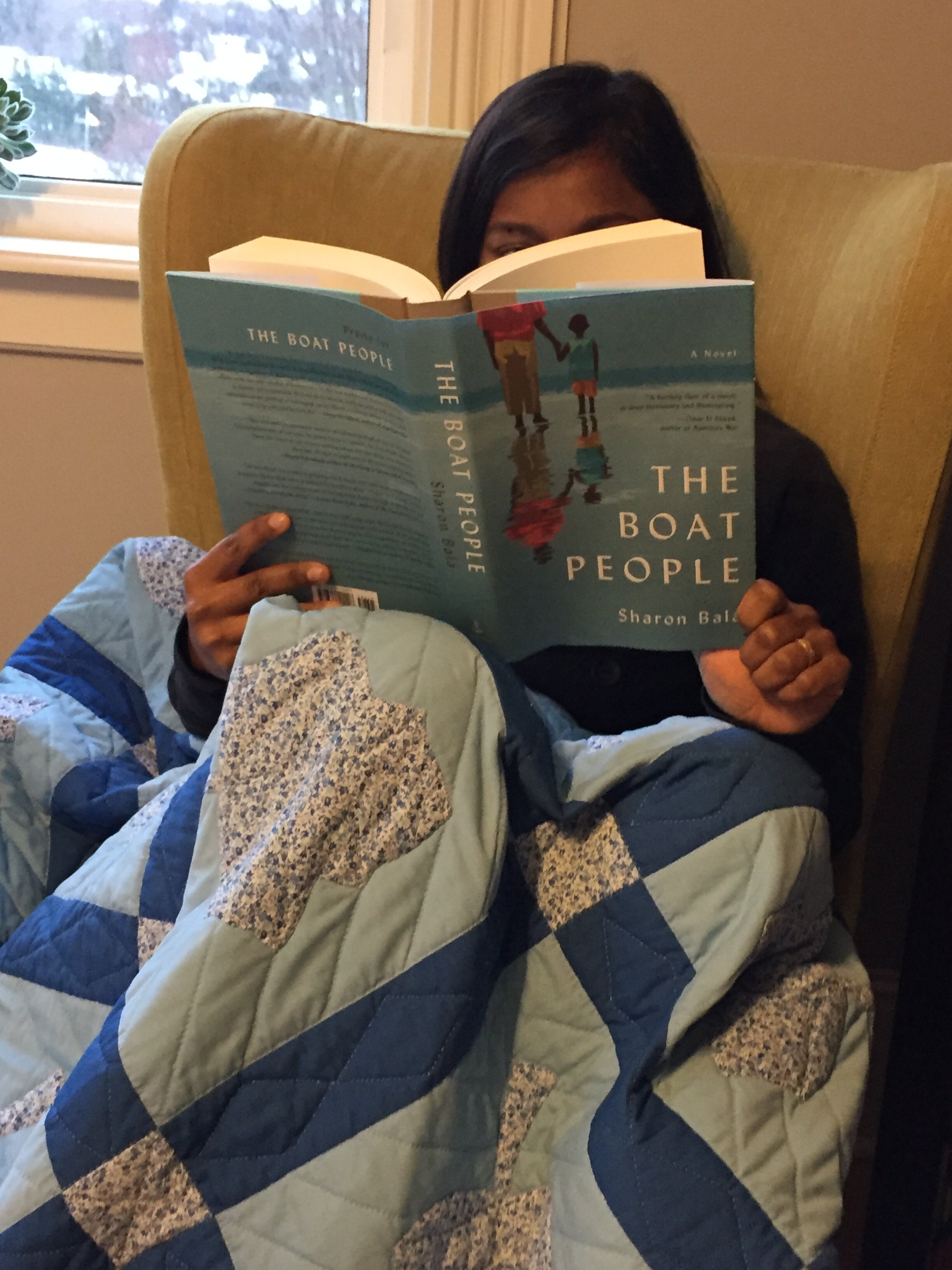
Survival guide for debut authors
What to expect when you’re expecting a book…
Twenty eighteen was a tornado. In my debut year as an author, I learned a good many lessons, many of them the hard way. So if you are an aspiring, emerging, or about-to-become debut author allow me to be of service.
SELF PROMOTION
DO order a cake decorated with the cover of your book.
Decide in advance what kind of public figure you will be. Will you be active on social media and if so, which platforms? Sage advice from my publicists: Do nothing that makes you uncomfortable. If you're going to spend your time on a platform, make sure it's one you enjoy. Keeping this website dynamic (ie. updated regularly) takes up more time than you might think. But does it bring me joy? You bet. So here we are.
Prioritize. I’m not on Twitter and I’m a middling instagrammer at best. Social media is not my priority and it shows. You know what's higher up on the food chain? Replying to reader email. I bet that shows too.
THE NEXT BOOK
Be head first into the second book before the first one comes out. You have no idea how well or poorly your published book will be received and it’s just psychologically helpful to already have a new imaginary world to keep you busy. And if you are lucky and up to your ears in book promotion, then it’s also helpful to have that new imaginary world where you can go to escape.
Don’t talk about it. “What are you working on now?” is a trick question. Don’t answer it.
Don’t marry your idea. Here’s something my editor (who has 20+ years of experience) told me: lots of writers have an idea for the second book long before the first one is done. And then they get attached to the idea and stick with it even when it isn’t working out. And thus you have the curse of the sophomore novel. If something isn’t working, let it go.
NUMBERS
DO NOT look too closely lest you spot errors!
The numbers will rob you of all sanity. Sales figures, royalty statements, number of GoodReads reviews, the bestseller list… these are not metrics; they are torture devices. Even when the numbers are good, a tiny devil in the back of your head will whisper: “just means you have further to fall.” Personally my advice is to ignore the numbers as much as possible. Does your publishing house have an author portal where you can track your sales? Good for them. Stay off it.
If you have an agent, ask them to send you a head’s up text about the royalty statement before it lands in your in-box like an undetonated grenade. Also, there is no law that says you have to read the detailed sales breakdown.
REVIEWS
Guess what? You don't have to read reviews!
It's helpful to have a policy. Will you read any? Which ones? I screwed up my courage and read the major ones (while grimacing with one eye closed). But for me, GoodReads is haram. Ditto Amazon and Chapters. Several months ago, I stopped reading reviews altogether, including the ones I'm tagged in on Instagram. It's not that I've had a lot of bad reviews (just the opposite), it's that I find reviews incredibly stressful and I maxed out on overall stress around mid-May.
Finally, remember that those cranky reviewers can go fuck themselves. :)
TRAVEL
Sign up for airplane rewards.
Invest in a pair of compression socks.
Often you get picked up at the airport and driven for hours to an event and there's no time to stop and get anything to eat. So here's a tip Kathleen Winter gave me: always travel with food.
Also (and I’ve learned this the hard way), close your eyes and sleep (or pretend to sleep) on those drives.
Take it from a former Catholic school girl: a work uniform is a life saver. Early in the year, I got a few dresses together. They pack light, straddle a couple of seasons, don't need to be ironed, and pair with the same three pairs of shoes.
Honour the Sabbath. The day after you return from a work trip should be a holiday. Sleep in, go for a massage, pay bills, do groceries...whatever...just don't put pressure on yourself to get back to work.
FESTIVALS AND EVENTS
At LitProm in Frankfurt (January 2020). This festival was multi-lingual. The headphones and simultaneously translators allowed us to understand each other. Book promotion is a trip.
If you are very busy (with work or your private life) and are trying to decide whether or not to say yes to a festival/ public reading invite here are some things to consider:
what's the speaker's fee? (In Canada the standard ranges from $125/hour at the very low end to $300/hour)
will they sell books on site? (for tiny community events in particular don't assume this is a given)
what's the event's reputation?
what are the audiences like?
how long is the travel time?
how many on stage events will you do? (Some festivals like the ones in Woody Point, Moose Jaw, and the Cabot Trail are great at offering authors multiple opportunities to appear on stage. The Edinburgh Book Fair was fantastic in this regard. I was only there for one day and they gave me two events.)
Ask your publicist and/or other authors for advice. Don't be afraid to say no. Remember: Saying yes to one thing always means saying no to something else (usually your own writing). Also: It's better for everyone if you say no up front rather than cancel later. Cancellations are a nightmare for festival organizers, most of whom are unpaid volunteers. Don’t be someone else’s nightmare if you can help it.
JURY DUTY
Before accepting a request to adjudicate an award or grant, ask:
how many entries will I have to read?
how long are they?
do I have to give feedback or write comments? if yes, for how many stories and how long should the comments be?
who else is on the jury?
what is the timeline for the work?
what is the compensation and when can I expect to receive it?
It’s worthwhile speaking to former jurors if you’re unsure.
READINGS
Make it snappy. I got this nugget from Miranda Hill: audiences get fidgety at the 20 minute mark and 10 minutes is the most anyone can stand to listen to an author reading from a book. If I’m told I have a 20 minute slot I usually do a bit of chit-chat for 5 minutes and read for 10. If I’m given 30 minutes and am the only author on stage, I break it up into two readings with chit chat in between and aim for 20 minutes total. No one is going to complain if you shut up a little early, particularly if it means there is time for Q&As.
Practice. And time yourself. Don’t be the selfish git who hogs the mic.
You don’t have to read word-for-word. The reading copies of my books are marked up. I cross out sections that get in the way. I add dialogue tags (he said/ she said) and transition words and skip over small flashbacks. Whatever makes the reading flow smoothly.
Read from the book that is for sale. I heard this story about Margaret Atwood. It might be apocryphal but it’s an important lesson anyway. She goes up to the sales table and chats with the book sellers. Which books have you got? Which ones are you trying to sell more of? And then she chooses her readings accordingly. As authors we are SICK TO DEATH of the book that’s for sale and sometimes we are tempted to read from work-in-progress. But here’s the thing: you’re at the event to flog the book that’s for sale. And no one is going to buy a book if they haven’t heard you read from it. Even if the thing-in-progress you read has them all at the edge of their seat, bawling, they still will not buy the book you didn’t read from.
Speaking of the book sellers: introduce yourself, shake hands, offer to sign left over books.
BEING SOCIAL
Chatting with readers at the Harper Lee Prize for Legal Fiction ceremony in Washington, DC. August, 2019
Writing is a deeply private, introverted activity. Promoting a book is an intensively public and extroverted activity. The switch is jarring and even as an extrovert, I am always emotionally drained, mildly depressed, and vaguely agoraphobic, after intense periods of being "on." Know your own limits and respect them. Maybe that means hermiting in your hotel room before going on stage. Maybe that means saying no thank you to the signing table or the cocktail party/ author reception/ group dinner/ trivia night. It's okay to skip out on the extras. As my mother likes to say: don't be a hero; do the minimum.
BLURBS
Don’t promise to blurb a book you haven’t read.
OTHER AUTHORS
If the internet is to be believed, everyone else is scoring bigger book deals, being invited to more events, and way more productive than you. In the spring I saw online that Michael Redhill (who had just won a Giller and was busy jet setting around to events) had just submitted the manuscript of his next novel to the publisher. How did he find the time? I wondered, while promptly feeling like the worst and laziest writer on the planet. Soon afterward, at a festival, I was chatting with Michael and he said he'd been working on said manuscript for years. What looked instantaneous and effortless online was actually a project long in the making.
One the most nourishing parts of this year has been candid conversations with other authors. It’s the best cure for envy because you very quickly realize that everyone is beset by all the same anxieties. Don't let comparison steal your joy. Everyone has their own struggles.
THE FALL
The Fall is hell; brace yourself. It’s the busiest time in the industry, when all the big festivals happen and all the major literary prizes are announced. It’s also when a flurry of new books hit the shelves. Everyone with a book out is stressed and on edge between September and mid to late November. And every long or short list you don’t make is a kick in the teeth. All the while you are promoting a book and going to festivals (because ‘tis the season!) and expected to look happy and unconcerned. So practice your happy and unconcerned face in the mirror and remember that everyone is in the same boat, forsaken by god, taking on water, and listing in the storm.
I’m going to go out on a short limb and say that even the authors who are winning all the awards are having a rough go of it this season. Because these short lists mean a whole ton of travel and a bazillion appearances all of which only seems fun until you have to endure it yourself (see above re: depression/ agoraphobia). Spare a thought for the writers with new babies and small children who they must leave at home (or travel with while breast feeding!).
There’s no cure for the Fall. You just have to, as Tyra Banks says, model through it.
Read this post by Kerry; it will help.
IT’S OKAY TO FEEL BAD
Year one will be excruciating. You put your heart and soul and hopes and pipe dreams into your first book. You dote on this book in private for years. And then it goes on sale and every loved one, nemesis, fremeny, and stranger can read and critique or (worse) ignore it. Every festival and list and review is another chance for rejection. Well meaning friends will demand to know why your book isn’t at Chapters/ Costco/ in the window display and you’ll want to hide under the nearest table. This year I have felt simultaneously on top of the world and incredibly vulnerable. Vulnerable to strangers. It’s surreal and complicated. Take heart. It’s like this for every author. Feeling awful is totally normal.



